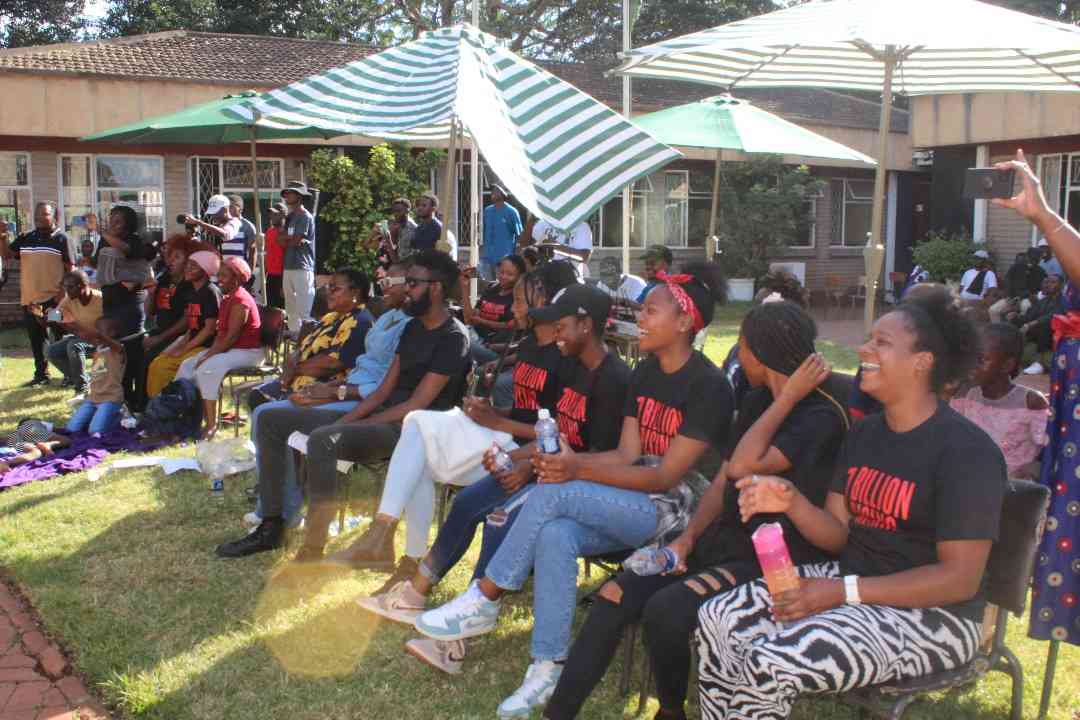
AFRO-JAZZ musician Selmor Mtukudzi has said it is difficult for local female musicians to make it and get recognised as they are considered to be into music to pass time.
She added that when it came to opportunities that arise, it is their male counterparts who benefit.
Selmor made the remarks speaking at the Women and Music Concert courtesy of One Billion Rising in partnership Zimbabwe College of Music held in the capital last week.
The concert was part of One Billion Rising’s initiatives in Zimbabwe aligned to a global movement held annually in February to raise awareness about violence against women and girls across the world.
“The music industry is so male dominated from top to bottom that a lot of people who are willing to part with their money are males. Many rich people who are involved in music related things are men as if there are no women who are successful.
“I believe we have women billionaires in this country, but they never seem to want to support females in the arts. If she is there, she has a male artiste she is promoting. So, we need rich females to rise up and say I am promoting this female artiste as what is seen happening to our male counterparts.”
She continued: “As a female artiste if you get that opportunity from a male, he is going to take advantage of you and that would be the end of you and we don’t want that. We need to continue to speak against that.”
“What we need to do is to go out there and make things happen. Let us have programmes out there and challenge them (male musicians). We cannot continue crying as it does not put food on the table,” she noted, adding that female musicians have to work hard as one day the ground will level up.
- Mavhunga puts DeMbare into Chibuku quarterfinals
- Bulls to charge into Zimbabwe gold stocks
- Ndiraya concerned as goals dry up
- Letters: How solar power is transforming African farms
Keep Reading
As advice to up-and-coming female musicians Selmor said they must marry the “right husband” who supports their careers.
“What silences female artistes is who they decide to marry. You marry the wrong husband and you are done for. You need to find someone who understands you, someone who understands the art.
“He might not be into music as well like my husband (Tendai Manatsa), but he should be someone who appreciates art. Find somebody who is ready to support you in your dream, because your husband is going to be the one who brings you down, he is going to be the one who silences you.”
She added: “It is very hard to get into this music industry. It is even very hard to stay, so you might give up on yourself and then just quit. We have had a number of musicians who have said I quit, I quit. Most females do not even announce, they just quit silently and disappear.”
“It’s a hard industry to stay in there and be relevant for so long. So, you could be the first person to silence yourself when you give up, so never give up, but continue and continue.”
Selmor said there was a need for more platforms for female artistes to showcase their talents, more festivals in Zimbabwe and a lot of venues as some are closing.
One Billion Rising campaign’s national co-ordinator Nyasha Sengayi told NewsDay Life & Style on the sidelines of the concert that there was a need for an attitude change towards how people receive and appreciate the work of female artistes.
She noted that female musicians were composing good music that needed to be appreciated as it can put Zimbabwe on the limelight.
“Zimbabwe is still far off in terms of supporting female musicians as the values are highly patriarchal. Some people do not believe that women can genuinely get into arts without raising conversations around stereotypes and discrimination,” Selmor said.
“It takes a lot for women to rise and be recognised in the music (local) industry. In the history of music, a lot of female artistes are appreciated more outside the country than in Zimbabwe. We have the likes of mbira musician Hope Masike, her works are really appreciated in Europe more than back home.”
Sengayi said the One Billion Rising campaign was derived from women’s statistics that one in three women will suffer some form of violence in their lifetime.
“The premise of the campaign is to try and project what a billion people look like and to have one billion people at least rise and bring their voices to the fore to end violence against women,” she said.
“In order for us to build the campaigns, we have relied so much on the support of female artistes in Zimbabwe and also partnering with key stakeholders like Zimbabwe College of Music from 2018,” she noted.
Speaking of the campaign’s theme Freedom Sengayi said their desire was to see women being able to express themselves in the fullest possible way they can.
“Year in, year out we have different themes that we take in relation to violence against women. Through our theme, we want women in the world to explain freedom and to give their own definition of the kind of life they want to live as free women, women who are empowered, women who have attained rights and as women who are provided for,” she said.
“So, our aim is just to send out a message to Zimbabwe and say we need to see our women free from gender-based violence and any other forms of violence.”






